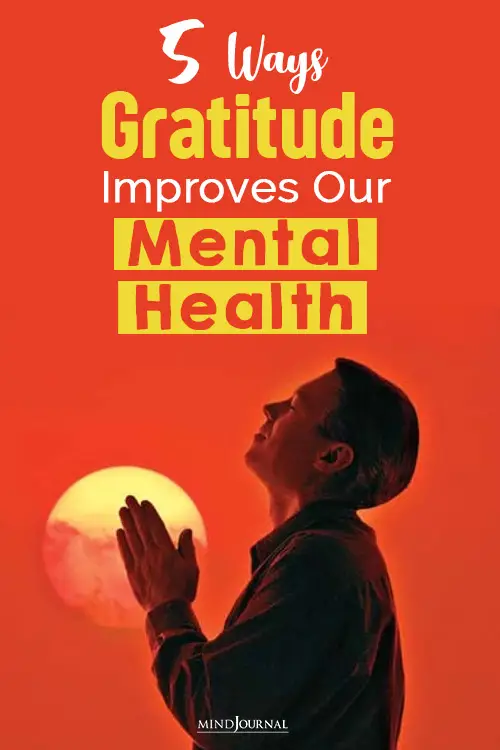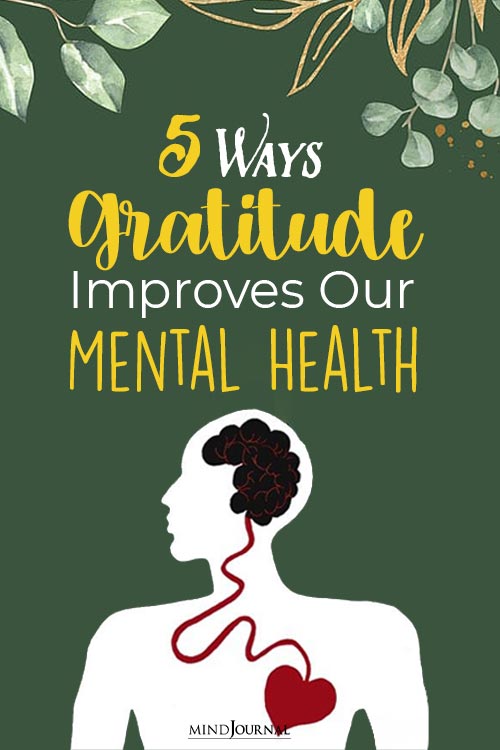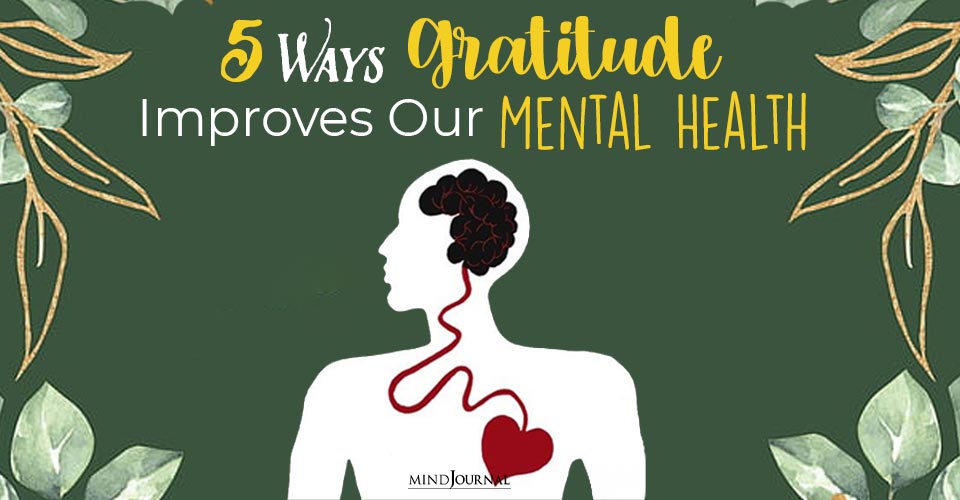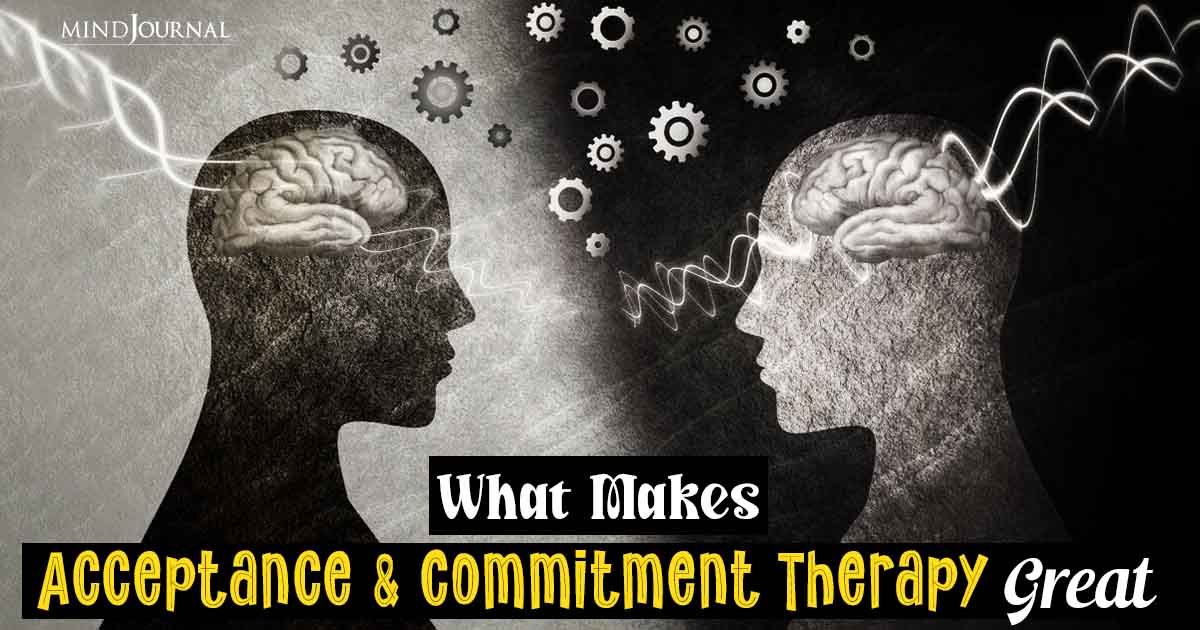Gratitude and mental health are intricately connected, and practicing gratitude can help you tremendously, both mentally and emotionally. Read on to know more about the mental health benefits of gratitude.
As a Crisis Counselor volunteer, it’s clear that mental health is suffering in this country. Without exploring all the different factors that go into the worsening mental health condition, there is one thing we can do: Use gratitude to pull ourselves up. Significantly, being grateful has an effect on the brain that is linked to life satisfaction and improved well-being.
Specifically, in 2019, Chinese researchers found an initial neural basis linking gratitude to life satisfaction in a study published in the journal Emotion. In the study, the structural makeup of a region in the brain called the medial prefrontal cortex (MPFC), which plays a role as the “social hub” of the brain, was influenced by how grateful the studied participants were, eventually determining their levels of life satisfaction.
Interestingly, the MPFC is also involved in human feelings of empathy and social decision-making. While prior studies show a correlation between gratitude and life satisfaction, the 2019 study is beginning to establish the neuroscientific connection between the two.
As neuroscience catches up to explain the benefits of being grateful —encouraged via positive psychology—there are several reasons why gratitude has a positive impact on mental health.
Related: Practicing Gratitude: 12 Sad Things That You Should Learn To Be Grateful For Instead
Gratitude And Mental Health: 5 Ways Gratitude Improves Our Mental Health
1. Gratitude helps us feel valued.
Just like having a job makes us feel useful and valued, gratitude plays a role in making us or another feel valued in our lives. The recognition, which may seem rather ordinary, actually can boost self-esteem and self-value in ways that are not yet understood scientifically.
Similar to how learning and achieving make us feel good about ourselves, gratefulness makes us each also feel valued and, in turn, improves self-esteem and self-value. The results are likely to include decreases in anxiety, depression, trauma, and stress, and increases in self-worth, motivation, productivity, achievement, and more.

2. It minimizes negative habits, patterns of thinking, and feelings.
When focusing on the positive, we focus less on negativity. The results are improved joy, satisfaction, more appreciation, kindness, generosity, empathy, and more positive expressions and behaviors. Gratefulness especially when expressed as a habit helps minimize negative habits, patterns of thinking, and feelings, which often are the causes of depression, panic, and fear.
It has the ability to override with accumulating positive thoughts, which, similar to how light can pour through a window, can wash away concerns, worries, and self-doubt. These latter emotions often are the root causes of stress, much of which can be substantially extinguished with regular and abundant amounts of gratitude.
3. It helps us rekindle our inner childhood wonder and awe.
Routine feelings of gratefulness expressed for things like nature, love, and connection, for example, can help us rekindle our inner childhood senses of wonder and awe. Louie Schwartzberg, an American time-lapse cinematographer, producer, and director, discusses in his TED Talk of 2011 how gratitude can bring us to appreciate each new day for being so unique.
In my perspective, this is as if each new day is like experiencing and viewing a new flower, a new wonder, in turn, rekindling our inner childhood senses.
While seemingly simple, if we did see each new day in this way, our ability to motivate ourselves might come easier, with less stress, and much stronger mental health. Such a perspective doesn’t come easily for each of us, but if applied and maintained, it can truly help us live a fulfilling and meaningful life.
Related: Impact Of Gratitude On Mental Health: 3 Effects of Gratitude On The Brain and Body, As Per Science
4. It helps us feel inspired, which can help with motivation.
Feeling inspired often can motivate us to learn, grow, change, improve, or adapt to difficult challenges and circumstances. Gratefulness has the ability to help us feel inspired, in turn, promoting such positive behaviors and adaptations.
While the neuroscientific evidence is not as abundantly clear, it is true that gratitude’s ability to inspire and motivate, leading to positive behaviors and adaptations, are key parts to leading a successful life rich with well-being.

5. It prevents worry and frustration.
By allowing us to focus on what’s good in the present, gratefulness helps to prevent worry about the future. Frustration can dissipate as well. With the help of it, we get less caught up with what a person says or does as much but want to focus on the next good thing to help us move forward.
It’s kind of like always wanting to catch the next great wave like a surfer. Much stress and frustration cause routine feelings of anxiety, sadness, and depression, and if truly applied and worked on, gratefulness can help mitigate such feelings.
The abundance of good from gratefulness fuels an abundance of good in return. Of course, finding our passions, practicing self-care, exercising, genuinely expressing ourselves when possible, building strong relationships, eating well, and more are part of a fulfilling life recipe; however, gratitude is often where a successful life starts.
Read 70+ Best Attitude Quotes That Will Change Your Attitude Towards Life
The positive impact of being grateful on our mental health is undeniable. Hopefully, you’ve got a gratitude routine down pat.
Please share this article with anyone who you may think will find it valuable and helpful.
References: Kong, F., Zhao, J., You, X., & Xiang, Y. (2019). Gratitude and the brain: Trait gratitude mediates the association between structural variations in the medial prefrontal cortex and life satisfaction. Emotion.
Written by Ms. Najma Khorrami, M.P.H. Originally appeared on Psychology Today Republished with permission










Leave a Reply
You must be logged in to post a comment.